nickel alloy tube
MTSCO stands at the forefront of innovation and excellence as a premier nickel alloy manufacturer. With a robust infrastructure composed of multiple specialized factories under MT Holding Group, MTSCO is dedicated to providing top-tier nickel alloy tubes for global industries. Our commitment to R&D and smelting of superalloys and corrosion-resistant alloy products ensures that our offerings perform exceptionally well in the harshest environments, including those with strong acid, high corrosion, elevated temperatures, and high pressure.
Our range of high-performing nickel alloy tubes, including incoloy tube variants such as Alloy 625, 600, 800, 825, and more, underscores our capability to meet diverse industrial needs. Spanning an area of over 33,500 square meters, our facilities are equipped with advanced technology including vacuum induction furnaces, electroslag remelting furnaces, air hammers, and sophisticated cold rolling and drawing machines. Our environmentally advanced bright annealing furnace further enhances product quality, ensuring an annual output of up to 3,000 tons of high-nickel alloy seamless pipes.
At MTSCO, quality is paramount. We employ a comprehensive range of inspection equipment from micro to macro levels, including spectrum analyzers and universal testing machines, all integrated within digital and networked control systems for complete traceability. Exporting to over 25 countries, MTSCO is the trusted partner for industries worldwide, committed to excellence, quality, and reliability in nickel alloy tube manufacturing.
Our range of high-performing nickel alloy tubes, including incoloy tube variants such as Alloy 625, 600, 800, 825, and more, underscores our capability to meet diverse industrial needs. Spanning an area of over 33,500 square meters, our facilities are equipped with advanced technology including vacuum induction furnaces, electroslag remelting furnaces, air hammers, and sophisticated cold rolling and drawing machines. Our environmentally advanced bright annealing furnace further enhances product quality, ensuring an annual output of up to 3,000 tons of high-nickel alloy seamless pipes.
At MTSCO, quality is paramount. We employ a comprehensive range of inspection equipment from micro to macro levels, including spectrum analyzers and universal testing machines, all integrated within digital and networked control systems for complete traceability. Exporting to over 25 countries, MTSCO is the trusted partner for industries worldwide, committed to excellence, quality, and reliability in nickel alloy tube manufacturing.
Products
-
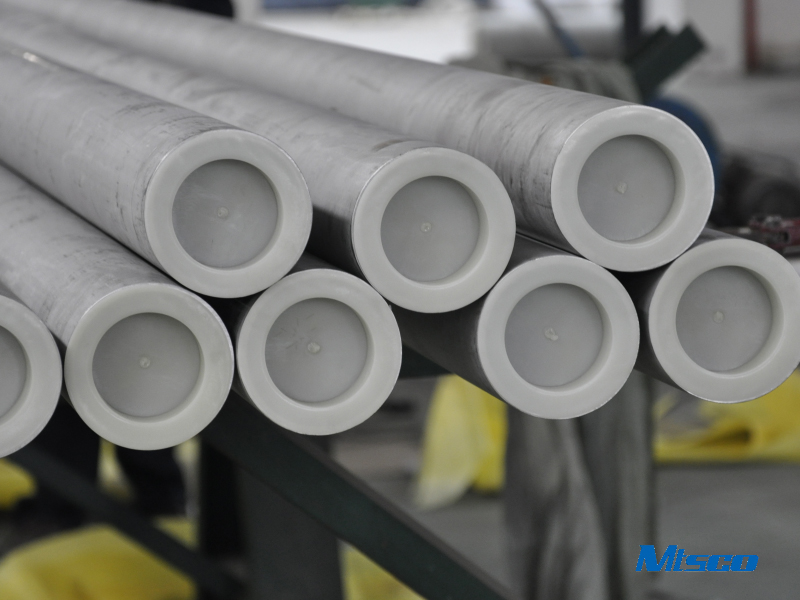
-
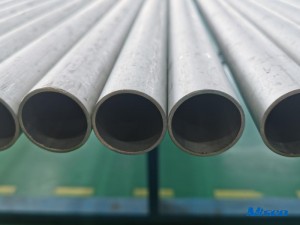
UNS N06600/Inc600 Nickel Alloy Seamless Pipe With Annealed Pickled Surface
UNS N06600/Inc600 nickel alloy seamless pipe is a nickel-based alloy pipe with excellent high temperature resistance and corrosion resistance, and is widely used in high temperature and corrosive environments.
-

-
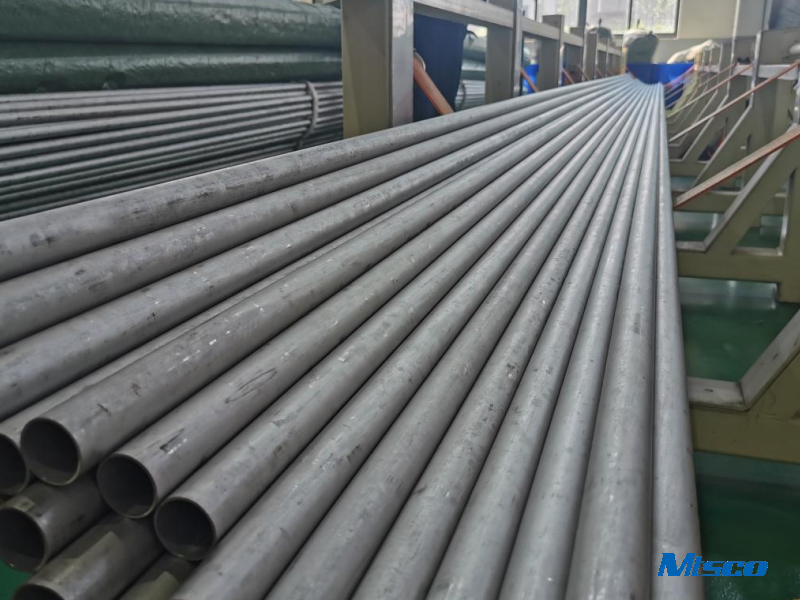
-
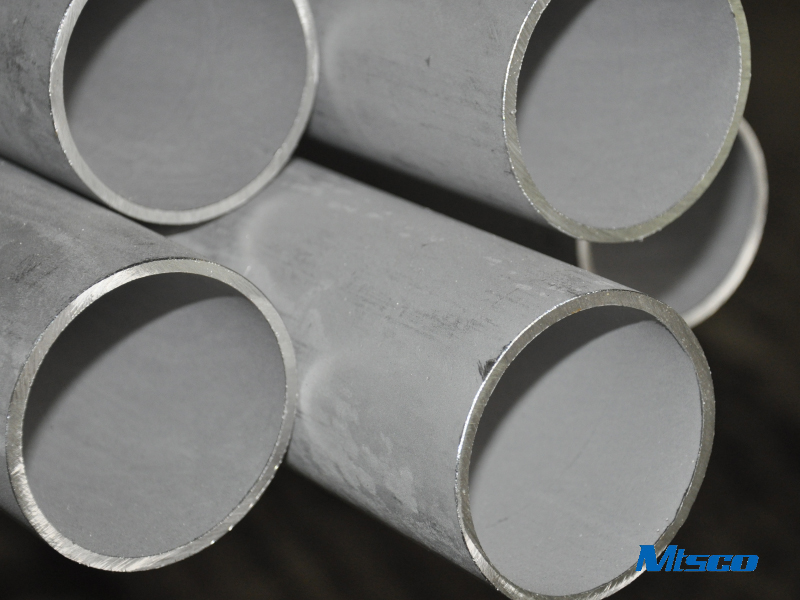
-
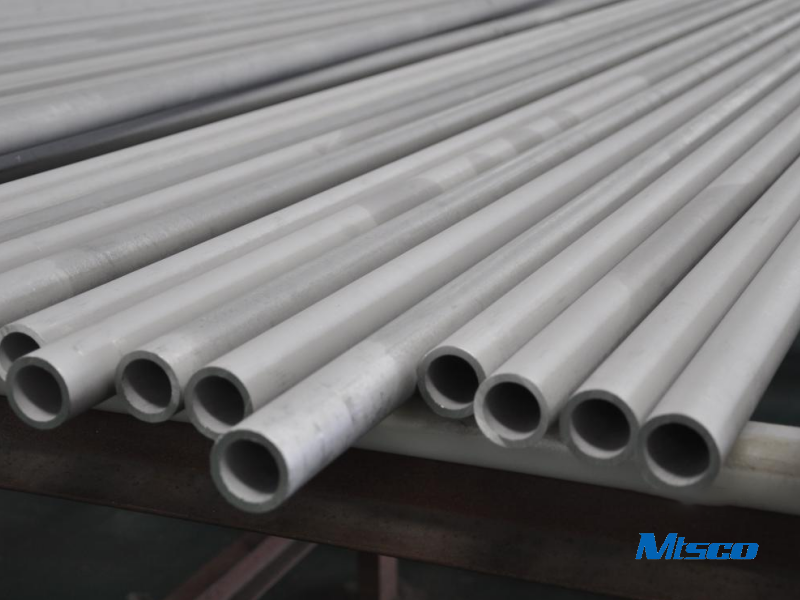
-
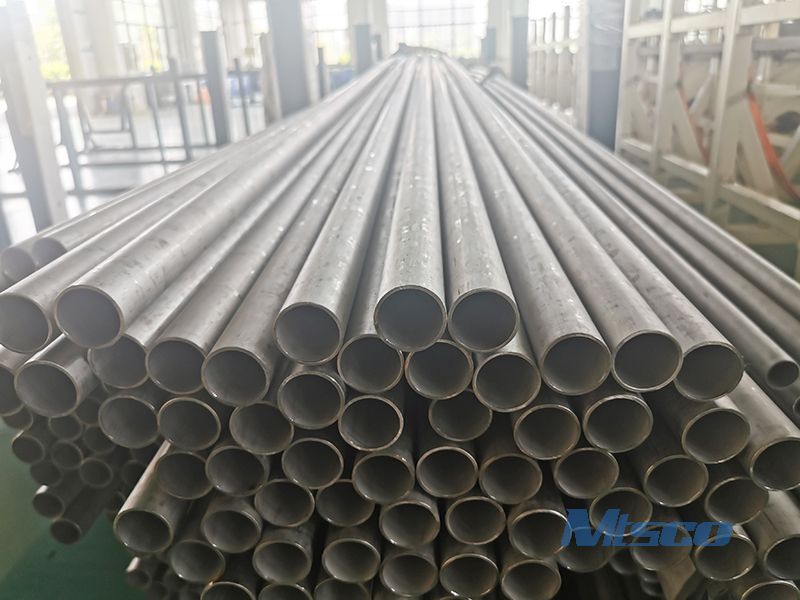
-
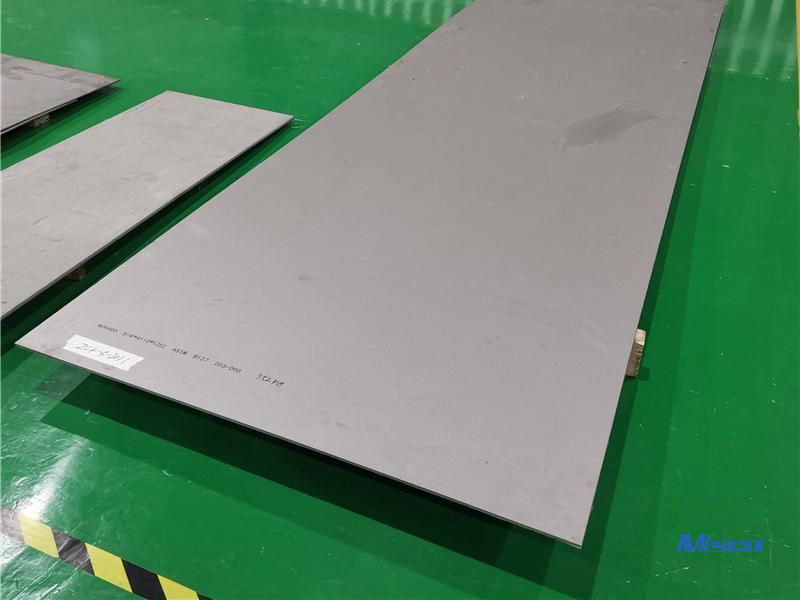
-
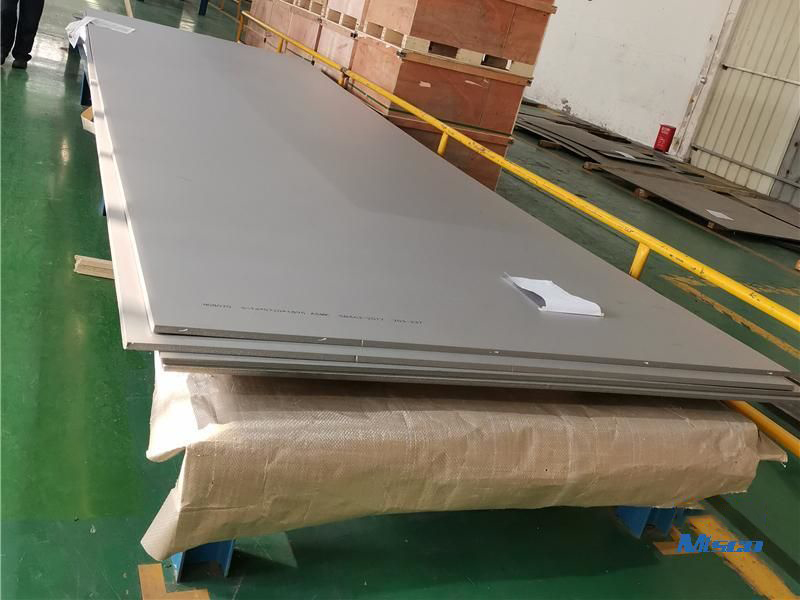
-
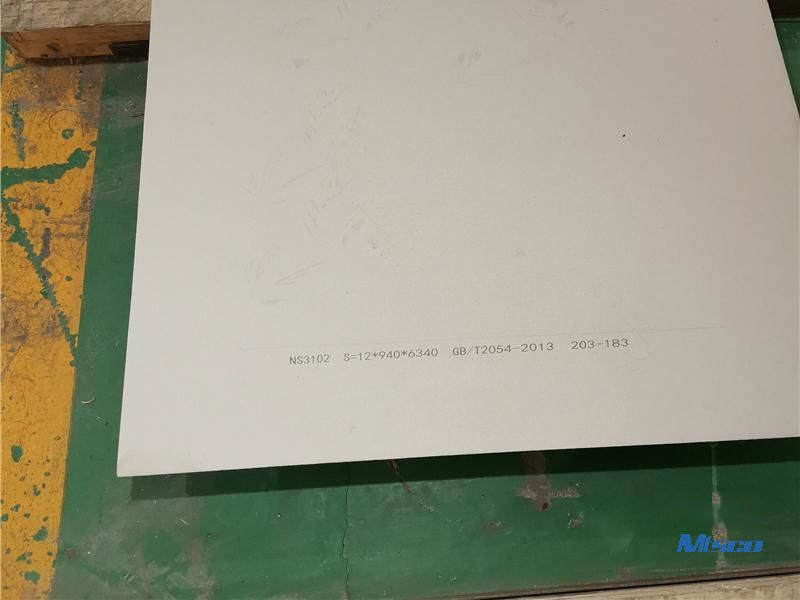
-
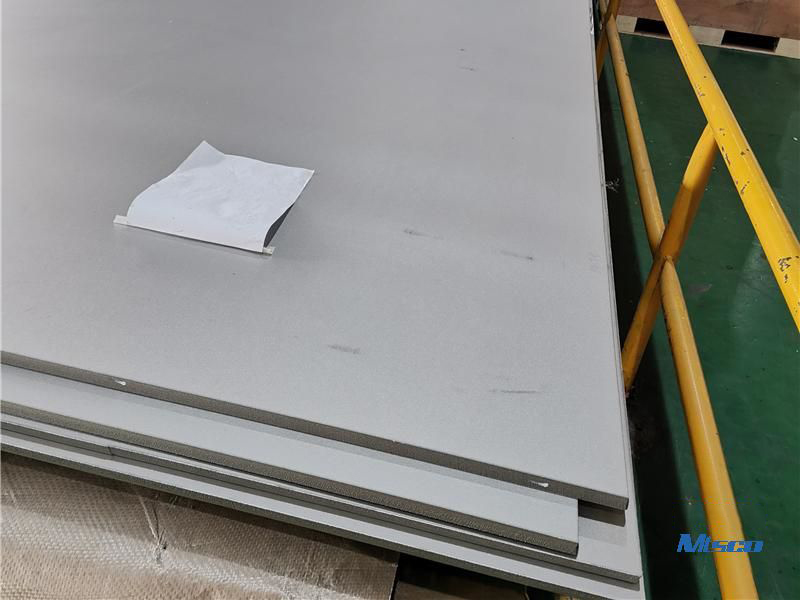
-
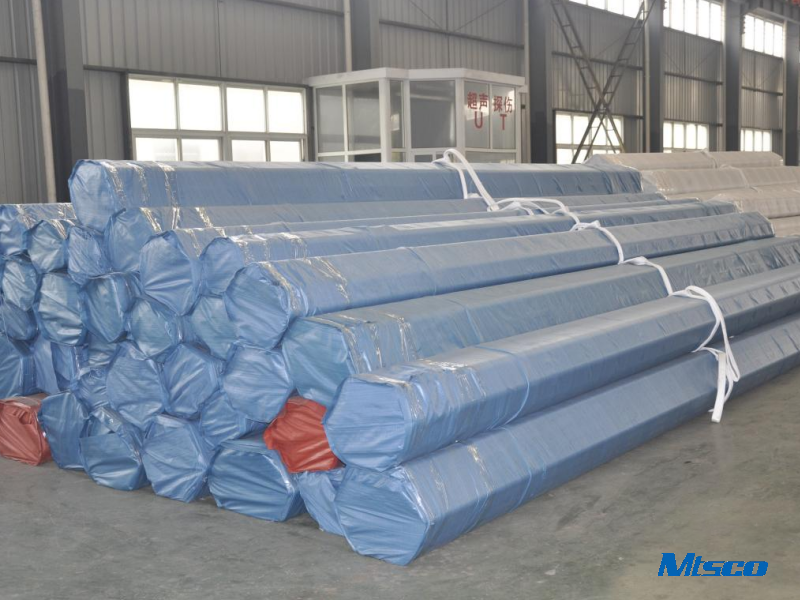
The Frequent FAQs of Products
What is nickel alloy pipe?▾
Nickel alloy pipes represent a crucial innovation in the field of material science and industrial applications, known for their exceptional properties and versatile use across various sectors. These pipes are made from nickel-based alloys, a group of metal mixtures where nickel constitutes the primary component, combined with other elements such as chromium, iron, molybdenum, and copper. These combinations enhance the material's properties, making nickel alloy pipes an ideal solution for demanding environments.
Properties and Benefits of Nickel Alloy Pipes
Nickel alloy pipes exhibit numerous advantageous properties, key among them being their outstanding resistance to corrosion and oxidation. This characteristic is particularly beneficial in industries where exposure to harsh chemicals, high temperatures, and severe environmental conditions is commonplace. For instance, the incorporation of chromium into the alloy significantly improves corrosion resistance, while elements like molybdenum and copper enhance resistance against pitting and crevice corrosion in acidic environments.
Another notable property of nickel alloy pipes is their excellent mechanical strength and toughness, even at elevated temperatures. This makes them suitable for high-stress applications, such as in the aerospace and power generation industries. Furthermore, nickel alloys maintain their structural integrity under fluctuating thermal conditions, ensuring reliability and longevity.
Additionally, nickel alloy pipes are renowned for their thermal conductivity and electrical resistance. These attributes make them invaluable in the electronics and telecommunications industries, where efficient heat dissipation and the prevention of electrical interference are critical.
Applications of Nickel Alloy Pipes
The unique properties of nickel alloy pipes open up a myriad of applications across various industries. In the chemical processing industry, these pipes are used to handle corrosive substances and gases, offering a durable solution that minimizes maintenance and downtime. The oil and gas sector also relies heavily on nickel alloy pipes for transportation and extraction processes, given their ability to withstand sour gas environments and resist stress corrosion cracking.
In the marine industry, nickel alloy pipes are essential for constructing components exposed to seawater, thanks to their excellent resistance to saltwater corrosion. Similarly, in power generation, particularly in nuclear and coal-fired plants, these pipes are used in systems where they must endure extreme temperatures and pressures without degrading.
The aerospace industry benefits from nickel alloy pipes due to their high strength-to-weight ratio and resistance to thermal expansion, making them ideal for aircraft engines and other critical components. In the medical field, nickel alloy pipes are used in equipment and devices that require sterilization and consistent performance under variable conditions.
Role of Nickel Alloy Tube Manufacturers
Manufacturers of nickel alloy tubes play a pivotal role in ensuring the quality and performance of these materials. They employ advanced metallurgical processes and stringent quality control measures to produce pipes that meet the high standards required by industry specifications. By leveraging state-of-the-art technology, these manufacturers can produce nickel alloy pipes that offer superior uniformity, precision, and durability.
Furthermore, reputable nickel alloy tube manufacturers provide a range of customization options to meet specific industrial needs. Whether it’s tailoring the alloy composition or dimensions to suit particular applications, these manufacturers ensure that each pipe delivers optimal performance. They also offer additional services such as finishing, testing, and certification to guarantee the reliability and safety of their products.
In conclusion, nickel alloy pipes are an indispensable component in modern industrial applications, offering unparalleled properties that meet the rigorous demands of various sectors. The expertise of nickel alloy tube manufacturers ensures the continued development and availability of high-quality pipes that drive innovation and efficiency across multiple industries.
Properties and Benefits of Nickel Alloy Pipes
Nickel alloy pipes exhibit numerous advantageous properties, key among them being their outstanding resistance to corrosion and oxidation. This characteristic is particularly beneficial in industries where exposure to harsh chemicals, high temperatures, and severe environmental conditions is commonplace. For instance, the incorporation of chromium into the alloy significantly improves corrosion resistance, while elements like molybdenum and copper enhance resistance against pitting and crevice corrosion in acidic environments.
Another notable property of nickel alloy pipes is their excellent mechanical strength and toughness, even at elevated temperatures. This makes them suitable for high-stress applications, such as in the aerospace and power generation industries. Furthermore, nickel alloys maintain their structural integrity under fluctuating thermal conditions, ensuring reliability and longevity.
Additionally, nickel alloy pipes are renowned for their thermal conductivity and electrical resistance. These attributes make them invaluable in the electronics and telecommunications industries, where efficient heat dissipation and the prevention of electrical interference are critical.
Applications of Nickel Alloy Pipes
The unique properties of nickel alloy pipes open up a myriad of applications across various industries. In the chemical processing industry, these pipes are used to handle corrosive substances and gases, offering a durable solution that minimizes maintenance and downtime. The oil and gas sector also relies heavily on nickel alloy pipes for transportation and extraction processes, given their ability to withstand sour gas environments and resist stress corrosion cracking.
In the marine industry, nickel alloy pipes are essential for constructing components exposed to seawater, thanks to their excellent resistance to saltwater corrosion. Similarly, in power generation, particularly in nuclear and coal-fired plants, these pipes are used in systems where they must endure extreme temperatures and pressures without degrading.
The aerospace industry benefits from nickel alloy pipes due to their high strength-to-weight ratio and resistance to thermal expansion, making them ideal for aircraft engines and other critical components. In the medical field, nickel alloy pipes are used in equipment and devices that require sterilization and consistent performance under variable conditions.
Role of Nickel Alloy Tube Manufacturers
Manufacturers of nickel alloy tubes play a pivotal role in ensuring the quality and performance of these materials. They employ advanced metallurgical processes and stringent quality control measures to produce pipes that meet the high standards required by industry specifications. By leveraging state-of-the-art technology, these manufacturers can produce nickel alloy pipes that offer superior uniformity, precision, and durability.
Furthermore, reputable nickel alloy tube manufacturers provide a range of customization options to meet specific industrial needs. Whether it’s tailoring the alloy composition or dimensions to suit particular applications, these manufacturers ensure that each pipe delivers optimal performance. They also offer additional services such as finishing, testing, and certification to guarantee the reliability and safety of their products.
In conclusion, nickel alloy pipes are an indispensable component in modern industrial applications, offering unparalleled properties that meet the rigorous demands of various sectors. The expertise of nickel alloy tube manufacturers ensures the continued development and availability of high-quality pipes that drive innovation and efficiency across multiple industries.
What is nickel alloy used for?▾
Nickel alloys are integral to various industries due to their remarkable properties and versatility. These alloys, created by combining nickel with other metals such as chromium, iron, molybdenum, and copper, exhibit exceptional corrosion resistance, high-temperature strength, and unique characteristics like shape memory and low thermal expansion. Their wide range of applications spans multiple sectors, showcasing their importance in modern technology and industrial processes.
Nickel alloys are highly prized in the chemical industry for their resistance to corrosive environments. Pure nickel alloys are particularly effective against alkalis, while nickel-molybdenum alloys are used in environments containing reducing acids. These characteristics make them essential in the manufacturing of chemicals where stability and durability are critical.
In the energy sector, particularly in power plants, nickel alloys are indispensable. The high-temperature strength and resistance to oxidation and carburization make nickel-chromium-iron alloys ideal for use in gas turbines, nuclear reactors, and other high-temperature environments. These alloys ensure the longevity and efficiency of critical components, contributing to sustainable energy production.
The transport and aerospace industries benefit immensely from the use of nickel-titanium alloys, known for their shape memory and super-elastic properties. These alloys are used in advanced applications such as specialized connectors and medical devices. Moreover, nickel-chromium-cobalt alloys provide high levels of creep-rupture strength and resistance to various forms of high-temperature corrosion, making them suitable for jet engines and other aerospace components.
Nickel-titanium alloys, due to their ability to undergo considerable elastic deformation and return to their original shape, are used extensively in medical devices. These include stents, dental braces, and other medical instruments that require precise control and adaptability. The biocompatibility and unique properties of these alloys open new avenues in medical technology, enhancing patient care and treatment outcomes.
In the architectural sector, nickel alloys contribute significantly to the durability and aesthetic appeal of structures. Their corrosion resistance makes them ideal for use in marine environments and coastal infrastructure. Nickel alloys are also used in reinforcing bars for concrete structures, providing enhanced strength and longevity. The use of these materials ensures that buildings and other constructions can withstand harsh conditions while maintaining their structural integrity.
A notable application of nickel alloys is in the production of incoloy tubes, which are used extensively in high-temperature and corrosive environments. These tubes, made from nickel-iron-chromium alloys, are essential in industries such as petrochemical processing and power generation. Their ability to resist oxidation, carburization, and other forms of high-temperature corrosion makes them a critical component in ensuring the reliability and efficiency of industrial processes.
Nickel alloys also find their way into everyday consumer products. Items such as spectacle frames leverage the super-elastic properties of nickel-titanium alloys, offering durability and flexibility. Nickel’s role in shielding against electromagnetic interference is exploited in electronic devices, enhancing their performance and reliability.
In conclusion, nickel alloys are vital to numerous industries due to their unique properties and adaptability. From enhancing the efficiency of power plants to ensuring the safety of medical devices, these materials play a crucial role in modern engineering and technology. The diverse applications of nickel alloys underscore their significance in advancing industrial capabilities and improving quality of life.
● Primary Applications
● ○ Chemical Industry
○ Chemical Industry
Nickel alloys are highly prized in the chemical industry for their resistance to corrosive environments. Pure nickel alloys are particularly effective against alkalis, while nickel-molybdenum alloys are used in environments containing reducing acids. These characteristics make them essential in the manufacturing of chemicals where stability and durability are critical.
● ○ Energy and Power Generation
○ Energy and Power Generation
In the energy sector, particularly in power plants, nickel alloys are indispensable. The high-temperature strength and resistance to oxidation and carburization make nickel-chromium-iron alloys ideal for use in gas turbines, nuclear reactors, and other high-temperature environments. These alloys ensure the longevity and efficiency of critical components, contributing to sustainable energy production.
● ○ Transport and Aerospace
○ Transport and Aerospace
The transport and aerospace industries benefit immensely from the use of nickel-titanium alloys, known for their shape memory and super-elastic properties. These alloys are used in advanced applications such as specialized connectors and medical devices. Moreover, nickel-chromium-cobalt alloys provide high levels of creep-rupture strength and resistance to various forms of high-temperature corrosion, making them suitable for jet engines and other aerospace components.
● Specialized Applications
● ○ Healthcare
○ Healthcare
Nickel-titanium alloys, due to their ability to undergo considerable elastic deformation and return to their original shape, are used extensively in medical devices. These include stents, dental braces, and other medical instruments that require precise control and adaptability. The biocompatibility and unique properties of these alloys open new avenues in medical technology, enhancing patient care and treatment outcomes.
● ○ Architecture and Construction
○ Architecture and Construction
In the architectural sector, nickel alloys contribute significantly to the durability and aesthetic appeal of structures. Their corrosion resistance makes them ideal for use in marine environments and coastal infrastructure. Nickel alloys are also used in reinforcing bars for concrete structures, providing enhanced strength and longevity. The use of these materials ensures that buildings and other constructions can withstand harsh conditions while maintaining their structural integrity.
● Advanced Engineering
● ○ Incoloy Tubes
○ Incoloy Tubes
A notable application of nickel alloys is in the production of incoloy tubes, which are used extensively in high-temperature and corrosive environments. These tubes, made from nickel-iron-chromium alloys, are essential in industries such as petrochemical processing and power generation. Their ability to resist oxidation, carburization, and other forms of high-temperature corrosion makes them a critical component in ensuring the reliability and efficiency of industrial processes.
● ○ Consumer Products
○ Consumer Products
Nickel alloys also find their way into everyday consumer products. Items such as spectacle frames leverage the super-elastic properties of nickel-titanium alloys, offering durability and flexibility. Nickel’s role in shielding against electromagnetic interference is exploited in electronic devices, enhancing their performance and reliability.
In conclusion, nickel alloys are vital to numerous industries due to their unique properties and adaptability. From enhancing the efficiency of power plants to ensuring the safety of medical devices, these materials play a crucial role in modern engineering and technology. The diverse applications of nickel alloys underscore their significance in advancing industrial capabilities and improving quality of life.
Are nickel alloys considered steel?▾
To address the question, "Are nickel alloys considered steel?" it's essential to delve into the definitions and properties of both materials. While they share some similarities, their differences highlight why nickel alloys are generally not classified as steel, despite both being pivotal in high-performance applications.
Steel is fundamentally an alloy primarily composed of iron and carbon, with the carbon content typically ranging between 0.02% and 2.1% by weight. This versatile material often includes other elements like manganese, chromium, vanadium, and tungsten to enhance its properties. The defining characteristic of steel is its iron base, which differentiates it from other alloy forms. The carbon in steel acts as a hardening agent, allowing for a range of properties from ductility to hardness, dependent on the carbon content and additional alloying elements.
On the other hand, nickel alloys are materials that comprise nickel as the principal element, often blended with other metals such as chromium, iron, and molybdenum. These alloys are celebrated for their exceptional resistance to corrosion, oxidation, and high temperatures, making them indispensable in extreme environments. An example of a nickel alloy is the incoloy tube, which is used extensively in industries demanding high corrosion resistance and durability under severe conditions.
The fundamental distinction between steel and nickel alloys lies in their primary metal base. Steel's primary component is iron, whereas nickel alloys are based predominantly on nickel. This difference in composition leads to varied physical and chemical properties, tailoring each material to specific applications. While steel can be engineered to possess incredible strength and moderate corrosion resistance, nickel alloys are designed to withstand environments where steel might fail, particularly in corrosive or high-temperature settings.
When compared in terms of physical and mechanical properties, nickel alloys and steel exhibit distinct behavior. Nickel alloys, like those used in incoloy tubes, maintain their integrity in temperatures beyond what most steels can withstand, and they resist scaling and oxidation exceptionally well. Conversely, while certain high-alloy steels can perform admirably in challenging conditions, they generally do not achieve the same level of performance as nickel alloys in the most demanding environments.
The application fields of steel and nickel alloys also diverge based on their unique properties. Steel finds extensive use in construction, automotive, and general manufacturing. Its versatility and wide range of mechanical properties make it a go-to material for structural and everyday applications. In contrast, nickel alloys serve more niche but critical roles, particularly in chemical processing, aerospace, and power generation. The incoloy tube, for example, is pivotal in heat exchangers and boilers, where its resistance to high-temperature oxidation and corrosion is crucial.
In conclusion, while nickel alloys and steel share some metallurgical similarities and overlapping uses, they are distinct categories of materials. Nickel alloys, such as those exemplified by the incoloy tube, are not considered steel due to their primary nickel base and superior performance in challenging environments. Understanding these differences is essential for selecting the appropriate material for specific applications, ensuring durability, safety, and efficiency in their respective fields.
● The Composition and Characteristics of Steel
Steel is fundamentally an alloy primarily composed of iron and carbon, with the carbon content typically ranging between 0.02% and 2.1% by weight. This versatile material often includes other elements like manganese, chromium, vanadium, and tungsten to enhance its properties. The defining characteristic of steel is its iron base, which differentiates it from other alloy forms. The carbon in steel acts as a hardening agent, allowing for a range of properties from ductility to hardness, dependent on the carbon content and additional alloying elements.
● Nickel Alloys and Their Unique Properties
On the other hand, nickel alloys are materials that comprise nickel as the principal element, often blended with other metals such as chromium, iron, and molybdenum. These alloys are celebrated for their exceptional resistance to corrosion, oxidation, and high temperatures, making them indispensable in extreme environments. An example of a nickel alloy is the incoloy tube, which is used extensively in industries demanding high corrosion resistance and durability under severe conditions.
● Differences in Composition
The fundamental distinction between steel and nickel alloys lies in their primary metal base. Steel's primary component is iron, whereas nickel alloys are based predominantly on nickel. This difference in composition leads to varied physical and chemical properties, tailoring each material to specific applications. While steel can be engineered to possess incredible strength and moderate corrosion resistance, nickel alloys are designed to withstand environments where steel might fail, particularly in corrosive or high-temperature settings.
● Physical and Mechanical Properties
When compared in terms of physical and mechanical properties, nickel alloys and steel exhibit distinct behavior. Nickel alloys, like those used in incoloy tubes, maintain their integrity in temperatures beyond what most steels can withstand, and they resist scaling and oxidation exceptionally well. Conversely, while certain high-alloy steels can perform admirably in challenging conditions, they generally do not achieve the same level of performance as nickel alloys in the most demanding environments.
● Applications and Use Cases
The application fields of steel and nickel alloys also diverge based on their unique properties. Steel finds extensive use in construction, automotive, and general manufacturing. Its versatility and wide range of mechanical properties make it a go-to material for structural and everyday applications. In contrast, nickel alloys serve more niche but critical roles, particularly in chemical processing, aerospace, and power generation. The incoloy tube, for example, is pivotal in heat exchangers and boilers, where its resistance to high-temperature oxidation and corrosion is crucial.
● Conclusion
In conclusion, while nickel alloys and steel share some metallurgical similarities and overlapping uses, they are distinct categories of materials. Nickel alloys, such as those exemplified by the incoloy tube, are not considered steel due to their primary nickel base and superior performance in challenging environments. Understanding these differences is essential for selecting the appropriate material for specific applications, ensuring durability, safety, and efficiency in their respective fields.
What are the 2 main advantages of using nickel and its alloys?▾
Nickel and its various alloys offer several advantages that make them indispensable in numerous industries. The two main advantages of using nickel and its alloys are their exceptional corrosion resistance and remarkable strength at elevated temperatures, qualities that significantly contribute to the performance and durability of components in challenging environments.
Nickel alloys are renowned for their outstanding corrosion resistance, making them ideal for applications in highly corrosive environments. This attribute is particularly valuable in industries such as chemical processing, marine, and oil and gas. The inherent corrosion resistance of nickel, often enhanced by alloying elements like chromium and molybdenum, ensures that components made from these materials can withstand harsh chemical reactions and saline conditions. For instance, in the chemical processing industry, where equipment is frequently exposed to acidic and oxidizing substances, nickel alloys like those containing high percentages of chromium offer unparalleled protection and longevity. By resisting deterioration, these materials help maintain the integrity and safety of processing systems, thereby minimizing downtime and maintenance costs.
In marine applications, nickel alloys are equally vital. The constant exposure to seawater and its corrosive properties can rapidly degrade materials not designed to endure such conditions. Nickel-copper alloys, for example, are specifically engineered to resist seawater corrosion, making them suitable for shipbuilding, offshore platforms, and seawater handling equipment. The exceptional corrosion resistance provided by nickel and its alloys translates directly to longer-lasting, more reliable structures and systems, ensuring that they remain functional and safe even in the most demanding environments.
Another significant advantage of nickel and its alloys is their ability to maintain strength and stability at elevated temperatures. This property is crucial for applications in the aerospace, power generation, and petrochemical sectors, where materials are routinely subjected to extreme heat. Nickel alloys are specifically designed to retain their mechanical properties under high-temperature conditions, thus ensuring structural integrity and reliability.
In the aerospace industry, components such as turbine blades, engine parts, and other critical elements must operate efficiently at high temperatures. Nickel alloys, by virtue of their high melting points and ability to withstand thermal stresses, are the materials of choice for these demanding applications. The excellent creep resistance and tensile strength of these alloys prevent deformation and failure, thereby extending the lifespan of aerospace components and enhancing overall safety.
Similarly, in power generation, nickel alloys are crucial in the construction of gas turbines, heat exchangers, and boiler components. These applications demand materials that can endure high-temperature operations without losing their strength or becoming brittle. Nickel's unique combination of high melting point, stability, and controlled thermal expansion makes it an indispensable material for ensuring the efficiency and reliability of power generation systems.
Nickel and its alloys stand out due to their exceptional corrosion resistance and remarkable strength at elevated temperatures. These two main advantages make them highly suitable for use in industries that operate in harsh environments and require materials that offer both durability and high performance. By providing reliable protection against corrosive elements and maintaining structural integrity under extreme heat, nickel alloys contribute significantly to the advancements and safety of modern industrial applications, solidifying their role as essential materials in contemporary engineering and technology. For those in search of materials that can meet these stringent demands, considering a reputable nickel alloy manufacturer is imperative to ensure the best quality and performance for their specific applications.
● Exceptional Corrosion Resistance
Nickel alloys are renowned for their outstanding corrosion resistance, making them ideal for applications in highly corrosive environments. This attribute is particularly valuable in industries such as chemical processing, marine, and oil and gas. The inherent corrosion resistance of nickel, often enhanced by alloying elements like chromium and molybdenum, ensures that components made from these materials can withstand harsh chemical reactions and saline conditions. For instance, in the chemical processing industry, where equipment is frequently exposed to acidic and oxidizing substances, nickel alloys like those containing high percentages of chromium offer unparalleled protection and longevity. By resisting deterioration, these materials help maintain the integrity and safety of processing systems, thereby minimizing downtime and maintenance costs.
In marine applications, nickel alloys are equally vital. The constant exposure to seawater and its corrosive properties can rapidly degrade materials not designed to endure such conditions. Nickel-copper alloys, for example, are specifically engineered to resist seawater corrosion, making them suitable for shipbuilding, offshore platforms, and seawater handling equipment. The exceptional corrosion resistance provided by nickel and its alloys translates directly to longer-lasting, more reliable structures and systems, ensuring that they remain functional and safe even in the most demanding environments.
● Remarkable Strength at Elevated Temperatures
Another significant advantage of nickel and its alloys is their ability to maintain strength and stability at elevated temperatures. This property is crucial for applications in the aerospace, power generation, and petrochemical sectors, where materials are routinely subjected to extreme heat. Nickel alloys are specifically designed to retain their mechanical properties under high-temperature conditions, thus ensuring structural integrity and reliability.
In the aerospace industry, components such as turbine blades, engine parts, and other critical elements must operate efficiently at high temperatures. Nickel alloys, by virtue of their high melting points and ability to withstand thermal stresses, are the materials of choice for these demanding applications. The excellent creep resistance and tensile strength of these alloys prevent deformation and failure, thereby extending the lifespan of aerospace components and enhancing overall safety.
Similarly, in power generation, nickel alloys are crucial in the construction of gas turbines, heat exchangers, and boiler components. These applications demand materials that can endure high-temperature operations without losing their strength or becoming brittle. Nickel's unique combination of high melting point, stability, and controlled thermal expansion makes it an indispensable material for ensuring the efficiency and reliability of power generation systems.
● Conclusion
Nickel and its alloys stand out due to their exceptional corrosion resistance and remarkable strength at elevated temperatures. These two main advantages make them highly suitable for use in industries that operate in harsh environments and require materials that offer both durability and high performance. By providing reliable protection against corrosive elements and maintaining structural integrity under extreme heat, nickel alloys contribute significantly to the advancements and safety of modern industrial applications, solidifying their role as essential materials in contemporary engineering and technology. For those in search of materials that can meet these stringent demands, considering a reputable nickel alloy manufacturer is imperative to ensure the best quality and performance for their specific applications.
Does nickel alloy rust?▾
Nickel alloys are highly regarded for their exceptional resistance to rust and corrosion, making them a preferred choice in various industrial applications. Unlike metals that contain ferrous elements, such as iron, nickel alloys are inherently resistant to rust. Rust is a specific type of corrosion that forms when iron reacts with oxygen and moisture, creating iron oxide. Since nickel alloys do not contain iron, they do not rust. However, it is important to note that while they do not rust, they can still corrode under certain conditions, but their corrosion resistance is notably superior to many other metals.
The primary reason nickel alloys do not rust lies in their composition. Nickel, being a non-ferrous metal, inherently resists the rusting process that afflicts iron and steel. When alloyed with other elements such as chromium, molybdenum, and copper, the corrosion resistance of nickel is further enhanced. Chromium, for example, forms a protective oxide layer on the surface of the alloy, which prevents further oxidation and protects the underlying metal from environmental factors that could cause corrosion. This makes nickel alloys particularly useful in environments that are harsh or involve exposure to corrosive substances.
Nickel alloys are known for their versatility and robustness in a wide range of environments. In reducing environments, where the metal is exposed to acids and caustic solutions, nickel alloys demonstrate remarkable resistance to degradation. When alloyed with chromium, they also show excellent performance in oxidizing environments. This dual resistance makes them invaluable in industrial settings, including chemical processing, petrochemical industries, and marine applications where other metals would fail.
Additionally, nickel alloys are designed to withstand localised forms of corrosion such as pitting, crevice corrosion, and stress corrosion cracking. For example, nickel-chromium-molybdenum alloys are particularly effective against pitting and crevice corrosion in chloride-rich environments, which are common in marine and coastal applications.
The corrosion resistance of nickel alloys can be attributed to the careful selection and combination of alloying elements. Chromium enhances resistance to oxidative corrosion and high-temperature oxidation. Molybdenum improves resistance to reducing acids and enhances pitting and crevice corrosion resistance. Copper offers increased resistance to reducing acids like sulphuric acid. Other elements such as niobium, tungsten, and nitrogen further enhance the overall corrosion resistance and mechanical properties of the alloys.
Niobium, for instance, combines with carbon to reduce the vulnerability to intergranular corrosion caused by chromium carbide precipitation. Tungsten improves resistance to localised corrosion and increases the strength and weldability of the alloy. Nitrogen enhances metallurgical stability and high-temperature strength, which are crucial for applications in demanding environments.
Nickel alloys are extensively used in industries where corrosion resistance is paramount. In the chemical processing industry, they are employed in the construction of reactors, heat exchangers, and piping systems. In the marine industry, nickel alloys are used for components like propeller shafts, pumps, and valves, which are constantly exposed to saltwater. Their excellent thermal stability and weldability also make them ideal for use in the aerospace and power generation industries.
Selecting the right nickel alloy manufacturer is crucial to ensure the quality and performance of the material. A reputable manufacturer will offer a range of nickel alloys tailored to different environmental conditions and industrial applications. They will provide technical guidance to help you choose the right alloy based on your specific needs, ensuring long-term reliability and efficiency in your operations. Nickel alloys from a trusted source promise exceptional resistance to rust and corrosion, making them an investment in durability and performance.
● What Makes Nickel Alloys Resistant to Rust?
The primary reason nickel alloys do not rust lies in their composition. Nickel, being a non-ferrous metal, inherently resists the rusting process that afflicts iron and steel. When alloyed with other elements such as chromium, molybdenum, and copper, the corrosion resistance of nickel is further enhanced. Chromium, for example, forms a protective oxide layer on the surface of the alloy, which prevents further oxidation and protects the underlying metal from environmental factors that could cause corrosion. This makes nickel alloys particularly useful in environments that are harsh or involve exposure to corrosive substances.
● Corrosion Resistance in Various Environments
Nickel alloys are known for their versatility and robustness in a wide range of environments. In reducing environments, where the metal is exposed to acids and caustic solutions, nickel alloys demonstrate remarkable resistance to degradation. When alloyed with chromium, they also show excellent performance in oxidizing environments. This dual resistance makes them invaluable in industrial settings, including chemical processing, petrochemical industries, and marine applications where other metals would fail.
Additionally, nickel alloys are designed to withstand localised forms of corrosion such as pitting, crevice corrosion, and stress corrosion cracking. For example, nickel-chromium-molybdenum alloys are particularly effective against pitting and crevice corrosion in chloride-rich environments, which are common in marine and coastal applications.
● The Role of Alloying Elements
The corrosion resistance of nickel alloys can be attributed to the careful selection and combination of alloying elements. Chromium enhances resistance to oxidative corrosion and high-temperature oxidation. Molybdenum improves resistance to reducing acids and enhances pitting and crevice corrosion resistance. Copper offers increased resistance to reducing acids like sulphuric acid. Other elements such as niobium, tungsten, and nitrogen further enhance the overall corrosion resistance and mechanical properties of the alloys.
Niobium, for instance, combines with carbon to reduce the vulnerability to intergranular corrosion caused by chromium carbide precipitation. Tungsten improves resistance to localised corrosion and increases the strength and weldability of the alloy. Nitrogen enhances metallurgical stability and high-temperature strength, which are crucial for applications in demanding environments.
● Applications and Industries
Nickel alloys are extensively used in industries where corrosion resistance is paramount. In the chemical processing industry, they are employed in the construction of reactors, heat exchangers, and piping systems. In the marine industry, nickel alloys are used for components like propeller shafts, pumps, and valves, which are constantly exposed to saltwater. Their excellent thermal stability and weldability also make them ideal for use in the aerospace and power generation industries.
● Choosing the Right Nickel Alloy Manufacturer
Selecting the right nickel alloy manufacturer is crucial to ensure the quality and performance of the material. A reputable manufacturer will offer a range of nickel alloys tailored to different environmental conditions and industrial applications. They will provide technical guidance to help you choose the right alloy based on your specific needs, ensuring long-term reliability and efficiency in your operations. Nickel alloys from a trusted source promise exceptional resistance to rust and corrosion, making them an investment in durability and performance.

